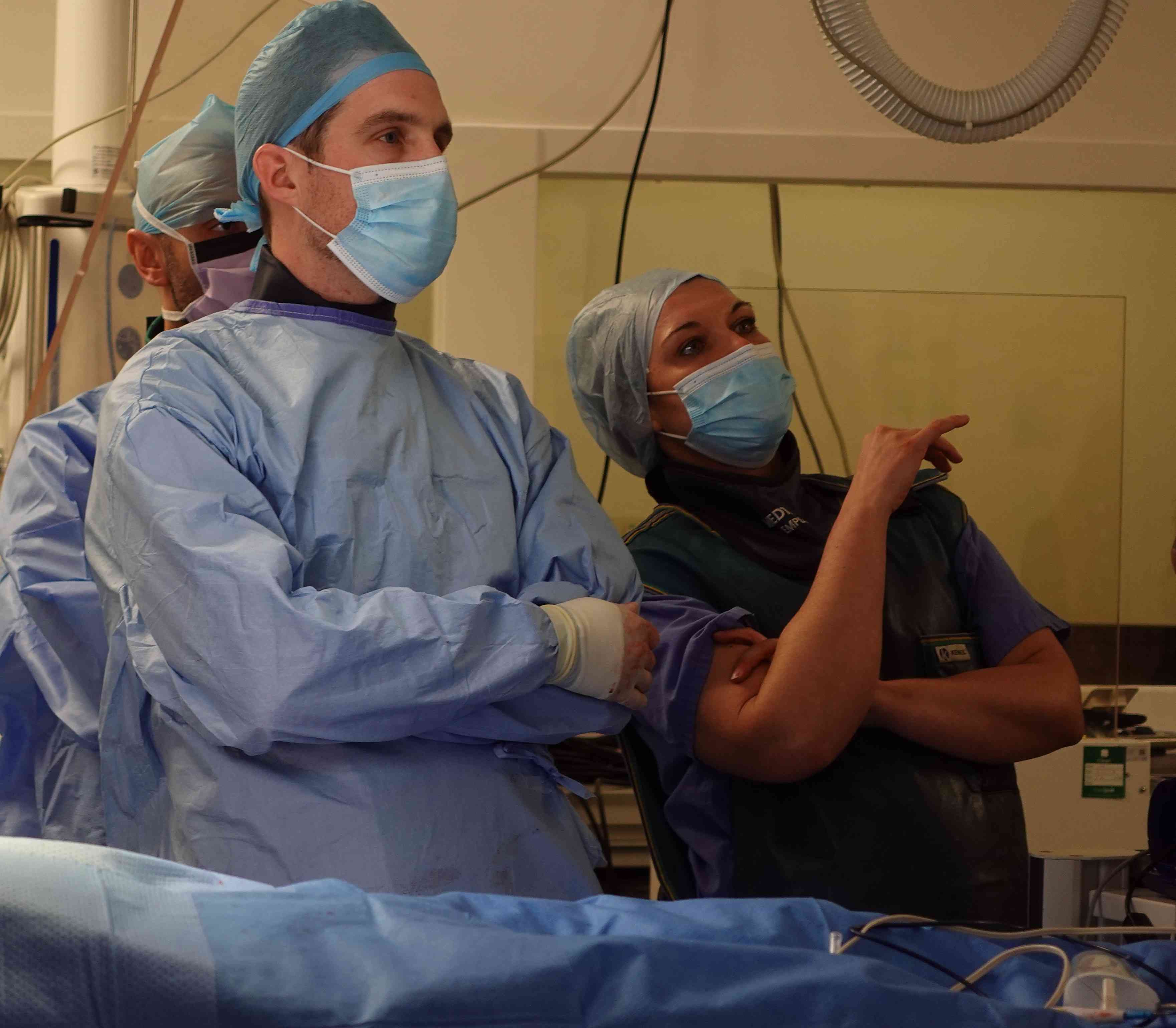Patients from Royal Papworth Hospital NHS Foundation Trust have become among the first in Europe, outside of clinical trials, to be given a new type of implantable cardioverter-defibrillator (ICD) to treat abnormal heart rhythms and prevent sudden cardiac arrest.
John from Newmarket and Gemma from Nottinghamshire – who are both at increased risk of sudden cardiac arrest - received the first implants of an extra-vascular ICD, the Medtronic Extravascular Implantable Cardioverter-Defibrillator (Aurora EV-ICD) system.
An ICD is a small device about half the size of a mobile phone which has wires leading to the heart. It is traditionally implanted under the skin, near the armpit or below the collarbone, to control the rhythm of the heart.
The key feature of this pioneering EV-ICD, from Medtronic, is the position of the defibrillator lead behind the sternum, which makes it more effective and safer for patients who have fast heart rhythms.
It marks the first major development in ICD technology in over 10 years.
Greg Mellor, Consultant Cardiologist & Electrophysiologist at Royal Papworth Hospital, commented: “We are very pleased to be among the first centres in Europe to have successfully implanted the new Aurora EV-ICD system which will help to treat conditions where there is an increased risk of sudden cardiac arrest.
“Defibrillators can help save lives for patients. This includes those who have survived a previous cardiac arrest or those with a heart condition where there is a substantial risk of cardiac arrest in the future.
“Traditional ICDs involve putting wires inside a patient’s heart and whilst these work effectively, there can be long-term complications associated with these, such as infection.
“With the Aurora EV-ICD, we place the lead outside the heart, but by positioning it under the patient’s sternum and closer to the heart it requires less energy.
“This means the smaller battery lasts several years longer and is also able to provide anti-tachycardia pacing which can be used to treat some fast heart rhythms without needing to shock the heart.”

Gemma outside Royal Papworth Hospital
Gemma, who has three young children and a 17-year old stepson, was diagnosed with heart failure in January 2023.
During this time she spent several weeks at Royal Papworth Hospital, including five days in critical care.
Her condition has been managed by medication under the care of Royal Papworth, but then at the start of 2024 she received a call from Dr Mellor about the new EV-ICD device.
Speaking after her procedure, she said: “Having the device won’t change my symptoms but knowing it is quietly working in the background to pace my heart properly, it provides me with assurance and more of a chance of watching my children grow up.
“In the long run, if mummy does get poorly, they’ll know this device could potentially save my life.”

John has had the new device implanted
Meanwhile John, who previously suffered a heart attack nine years ago, was referred to Royal Papworth in December 2023 suffering from a shortness of breath.
Just a week later he was approached by Dr Mellor about having the new device implanted.
“I’ve lost too many friends to illness in the past, so I wanted to put my trust in Dr Mellor’s expertise and get it done,” explained John.
Within a few days, John had his procedure and after an overnight stay in a cardiology ward, returned home the following day where he has been recovering well.
“I’m really grateful for how quickly this has all happened,” he added.

Dr Greg Mellor (left) during one of the cath lab procedures
Dr Mellor added, “Both patients have recovered well from their procedures and will now be able to lead an improved quality of life thanks to these devices.
“This is another great example of innovation here at Royal Papworth, thanks to collaborative work between Medtronic and our catheter laboratory, cardiology and day ward teams.”
